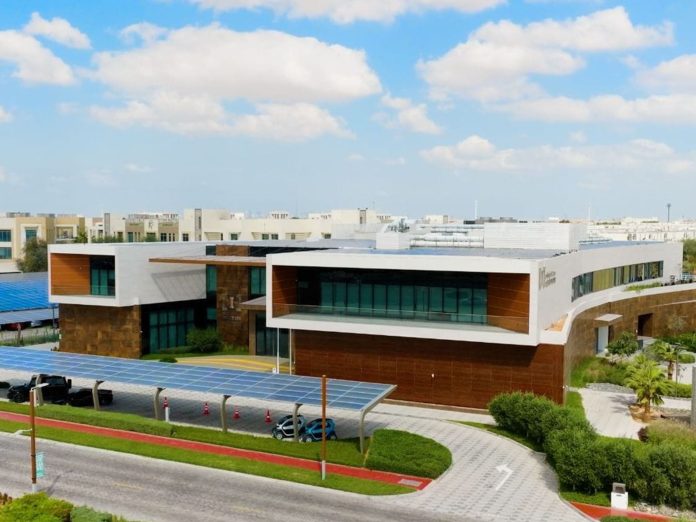ABU DHABI, 26th April, 2024 (WAM) — TRENDS Research and Advisory has actively engaged in the World Sustainability Summit 2024, which was hosted by the SEE Sustainability Institute at its headquarters in Sustainable City, Dubai, from 25th to 26th April.
Mouza Almarzooqi, Head of Economic Studies at TRENDS, represented the Centre and unveiled the findings of a research paper titled “Technology: Enhancing the Circular Economy and Global Sustainable Growth—Lessons Benefited in Developing Countries”. Her presentation was a highlight of a pivotal session focused on “Circular Economy Innovations.”
The event, known as the “World Sustainability Summit 2024,” serves as a global forum for industry experts, scholars, and researchers to convene, share insights, and discuss sustainability-related topics. It spotlights innovative initiatives addressing circular economy challenges and strategies for building smart, resilient cities and communities.
Almarzooqi said technology plays an essential role in advancing the circular economy. While the concept entails maximising resource efficiency for economic growth, Almarzooqi highlighted the necessity of integrating modern technology to transition effectively to this model. Her research paper delves into this intersection, examining global case studies to understand how technology can optimise various aspects of the circular economy.
Further, Almarzooqi outlined the research methodology, which involved analysing successful international transitions to a circular economy. The paper concludes by identifying several pivotal roles for technology in fostering sustainability and economic prosperity. These include advocating for government regulations that strike a balance to support circular economy practices and urging corporations to align profitability objectives with commitments to human capital and environmental objectives for sustainable development.
She highlighted the need for multifaceted actions and diverse strategies to accelerate adopting and shifting to circular economic models in developing countries. This transition is crucial for bolstering their resilience to crises and achieving sustainable development objectives. The research underscores the importance of leveraging technology’s positive aspects while mitigating its costs. Key measures include enhancing environmental and corporate governance indicators.
Almarzooqi emphasised the study’s recommendation to focus efforts on various fronts, such as concessional financing, investments in education and training, regional integration, and the development of environmental and corporate governance metrics. These indicators encompass assessments for both public sector entities and local governments.
She remarked that the research study concluded the necessity of establishing advanced models of production efficiency to foster supply chain development. This ensures more effective utilisation of technology to bolster circular economy growth while curbing waste generation through technology adoption tailored to various production modes. Additionally, it underscores the importance of motivating national companies to lead in technological innovation within the circular economy.
Almarzooqi elaborated that the successful integration of technology to support the circular economy hinges on strengthening the ties between circular economy sectors and national economies. Furthermore, she emphasised the imperative of a balanced approach in selecting technological innovations, prioritising those aimed at reducing greenhouse gas emissions and promoting sustainable economic development.

